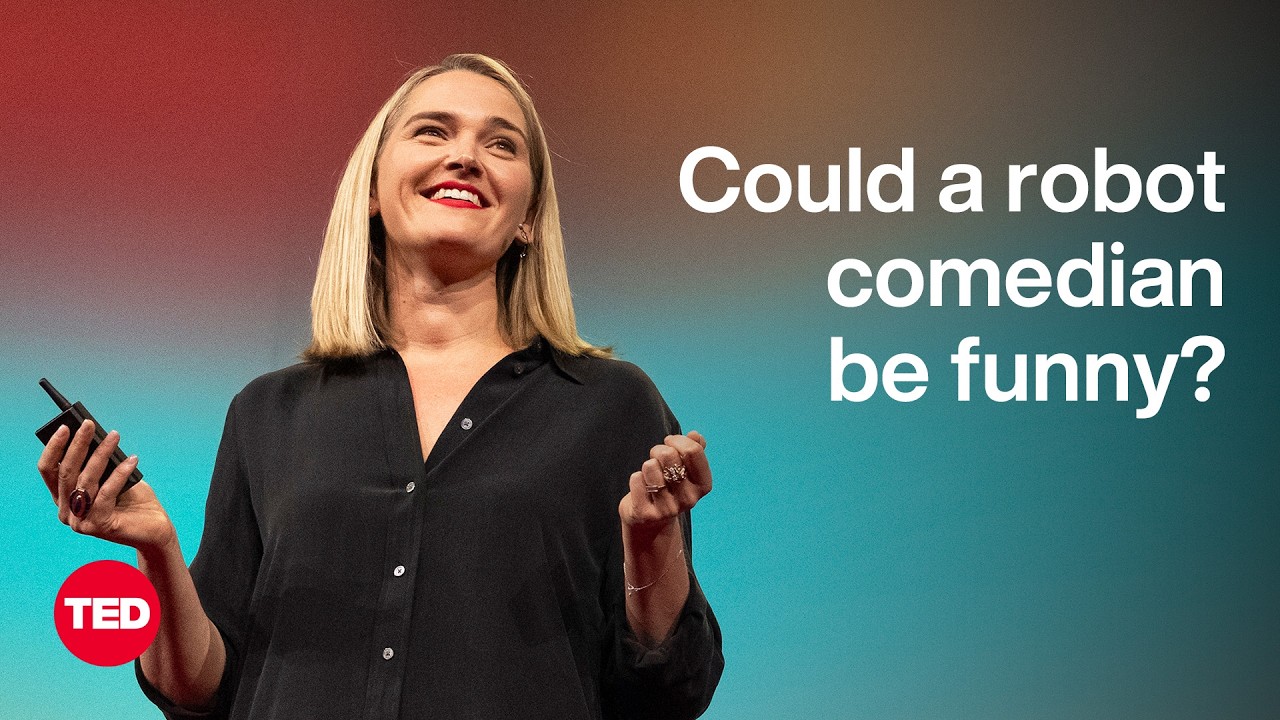In her TED talk, Jena Friedman humorously explores the impact of AI on comedy and writing, highlighting AI’s inability to authentically handle sensitive topics like abortion humor, which she argues are essential to human creativity and identity. She warns that as AI evolves, it may erode these uniquely human nuances, making the raw, uncomfortable aspects of comedy crucial to preserving our humanity amid technological advances.
In her TED talk, Jena Friedman humorously addresses the impact of artificial intelligence (AI) on the entertainment industry, particularly on writers and comedians. She begins by referencing the recent writers’ strike, which aimed to limit AI’s role in television and film writing, highlighting the industry’s fear of being replaced by machines. Friedman jokes about the bleak future for TV writers and her own return to stand-up comedy, noting the irony of performing at TED, a platform often associated with serious, intellectual talks.
Friedman explores societal fears surrounding AI, especially among men who worry about robots becoming sentient and potentially threatening human relationships, referencing the sci-fi film “Ex Machina” as a cultural touchstone. She satirizes Hollywood’s portrayal of AI and robots, suggesting that male anxieties about robotic partners reflect deeper insecurities. Despite these fears, she suggests that AI might not be entirely detrimental to her field, though she humorously predicts that in a few years, comedians might be replaced by robotic performers who mine personal data to connect with audiences.
A significant portion of her talk focuses on the limitations of AI in handling sensitive and controversial topics, such as abortion jokes. Friedman shares her experience trying to get AI tools like ChatGPT and DeepSeek to generate abortion-related humor, only to find them either unwilling or biased in their responses. She uses this to illustrate the unique human capacity to engage with difficult subjects through comedy, something AI currently cannot replicate authentically.
Friedman argues that these raw, unfiltered aspects of human experience—embodied in edgy or uncomfortable jokes—are what separate humans from machines. She warns that as AI continues to evolve and learn from human data, it might eventually understand and replicate these nuances, potentially eroding what makes human comedy distinct. Until then, she suggests that embracing these challenging topics is essential to maintaining our humanity in the face of advancing technology.
Concluding on a poignant note, Friedman reflects on the political and social realities surrounding abortion rights in the United States, noting the increasing restrictions and the potential erasure of shared understanding about abortion. She uses this as a metaphor for the broader theme of her talk: as AI advances and societal norms shift, the uniquely human elements of comedy and conversation—our “abortion jokes”—may be all that remain to define our humanity. Her talk blends humor with critical insight, encouraging the audience to consider the complex relationship between technology, creativity, and human identity.
